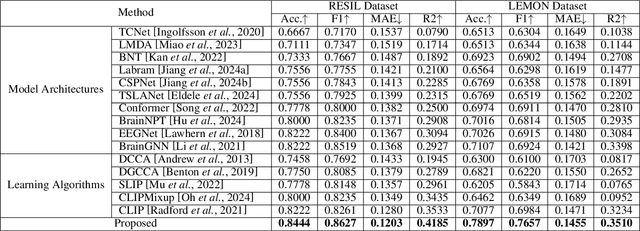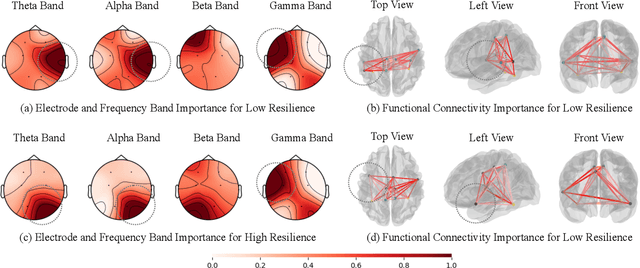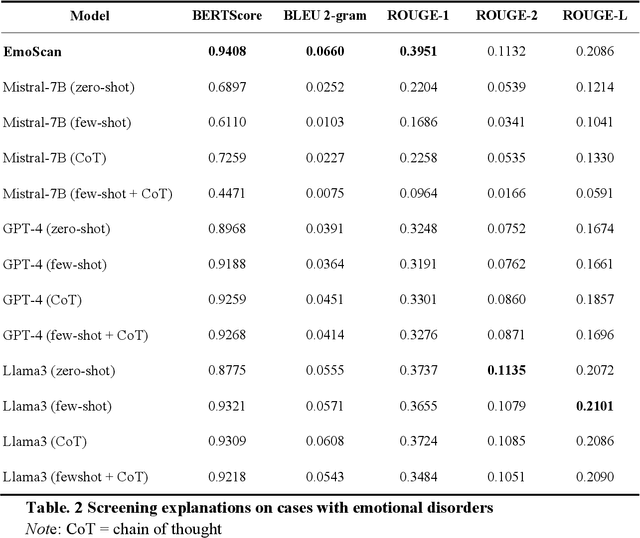Mengxia Gao
Data-Efficient Model for Psychological Resilience Prediction based on Neurological Data
Feb 03, 2025



Abstract:Psychological resilience, defined as the ability to rebound from adversity, is crucial for mental health. Compared with traditional resilience assessments through self-reported questionnaires, resilience assessments based on neurological data offer more objective results with biological markers, hence significantly enhancing credibility. This paper proposes a novel data-efficient model to address the scarcity of neurological data. We employ Neuro Kolmogorov-Arnold Networks as the structure of the prediction model. In the training stage, a new trait-informed multimodal representation algorithm with a smart chunk technique is proposed to learn the shared latent space with limited data. In the test stage, a new noise-informed inference algorithm is proposed to address the low signal-to-noise ratio of the neurological data. The proposed model not only shows impressive performance on both public datasets and self-constructed datasets but also provides some valuable psychological hypotheses for future research.
Enhanced Large Language Models for Effective Screening of Depression and Anxiety
Jan 15, 2025



Abstract:Depressive and anxiety disorders are widespread, necessitating timely identification and management. Recent advances in Large Language Models (LLMs) offer potential solutions, yet high costs and ethical concerns about training data remain challenges. This paper introduces a pipeline for synthesizing clinical interviews, resulting in 1,157 interactive dialogues (PsyInterview), and presents EmoScan, an LLM-based emotional disorder screening system. EmoScan distinguishes between coarse (e.g., anxiety or depressive disorders) and fine disorders (e.g., major depressive disorders) and conducts high-quality interviews. Evaluations showed that EmoScan exceeded the performance of base models and other LLMs like GPT-4 in screening emotional disorders (F1-score=0.7467). It also delivers superior explanations (BERTScore=0.9408) and demonstrates robust generalizability (F1-score of 0.67 on an external dataset). Furthermore, EmoScan outperforms baselines in interviewing skills, as validated by automated ratings and human evaluations. This work highlights the importance of scalable data-generative pipelines for developing effective mental health LLM tools.
 Add to Chrome
Add to Chrome Add to Firefox
Add to Firefox Add to Edge
Add to Edge